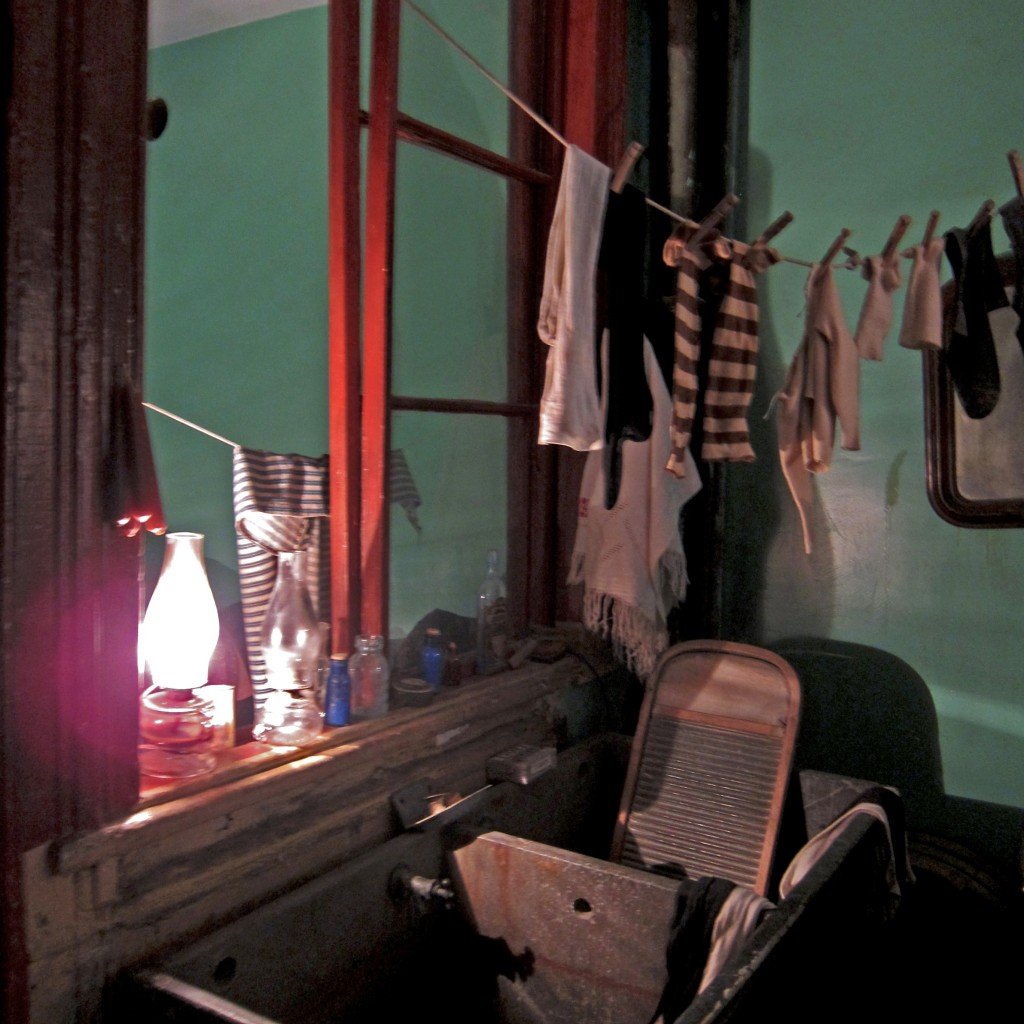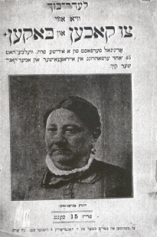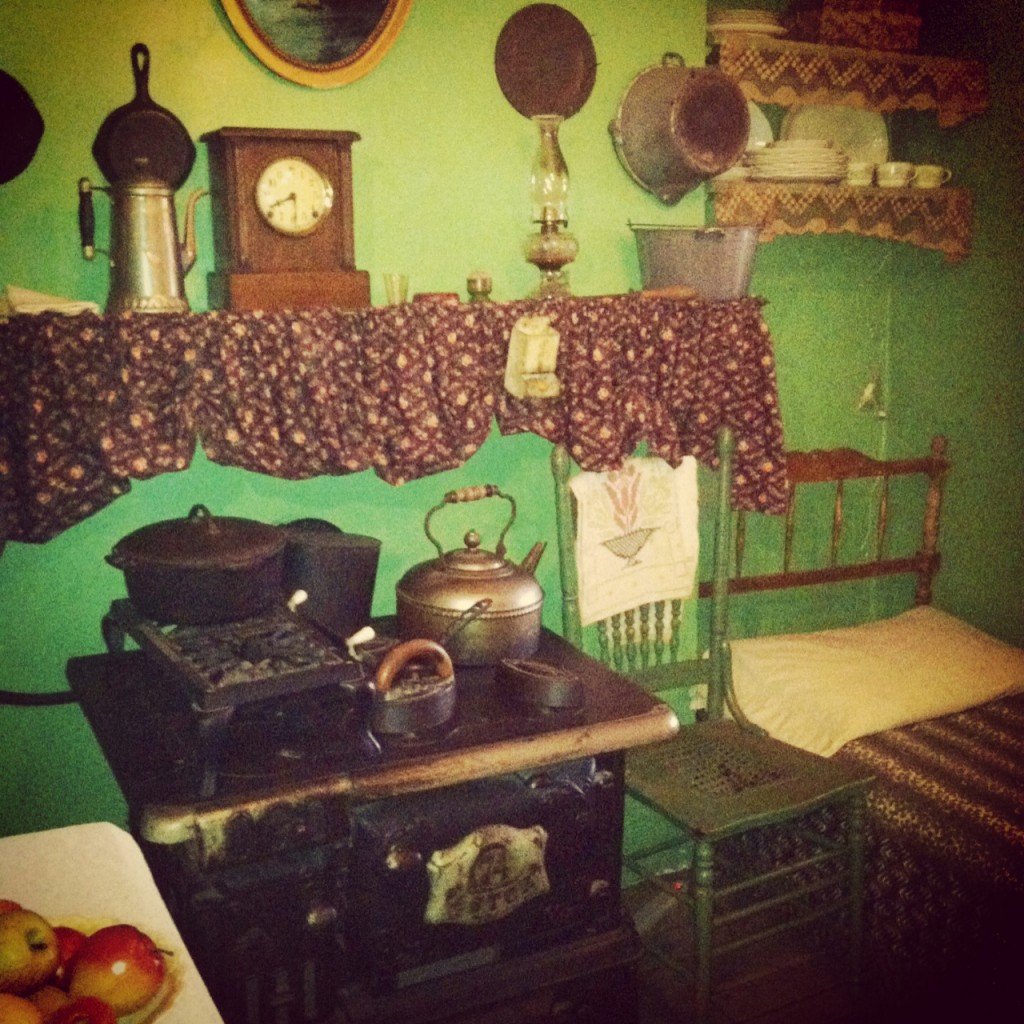Blog Archive
Home Cookin’ With Hinde
Every day at 97 Orchard Street, our educators stand in the tenement kitchens and explain how immigrant women managed their households, raised their children, cared for boarders and adapted their lives to a new city. Given all the work that was required to run a tenement household, most women didn’t have time to contemplate– let alone write about– all the changes they had experienced, so as we try to imagine their perspectives on their new lives, we often rely on the sources of contemporary observers.
That is why the cookbook of Hinde (hin-deh) Amchanitski is so valuable to historians of the tenement. Originally published in 1901, it was the first Yiddish cookbook in America. Amchanitzki addressed her Yiddish-audience as “sisters,” and her tone throughout is that of an approachable, yet authoritative neighbor. Hinde’s photo is on the cover of the cookbook, and her fixed and steady gaze seems to assure the readers that they can bring her into their own kitchens.
In the forward to the cookbook, Amchanitski boasts that she has “45 years of experience in European and American kitchens” and promises that her 148 recipes are “purely Jewish dishes” which had been prepared in the “finest homes” in Russia, Hungary, France, Germany and America. Perhaps more important, she appeals to their pocketbooks by emphasizing how women can have her 148 recipes for a mere 15 cents and that purchasing the book will bring further savings to these women, as the recipes are extremely economical.
So what were Amchanitski’s treasured recipes? And more important, what do these recipes tell us about the women of the tenement? On Wednesday, November 13, our Tenement Talk brings into conversation food historian Jane Ziegelman, author of 97 Orchard: An Edible History and Tenement Museum VP Annie Polland to unveil more of these recipes and discuss what they tell us about how immigrant women actively adapted to America. We don’t want to divulge too many secrets before the panel, but we will tell you that there are more recipes for pie than for gefilte fish. And the price of this free panel is even cheaper than the cookbook in 1901!
If this isn’t enticing enough, Jane Ziegelman will be preparing samples of Amchanitzki’s cranberry strudel. We’ll pass out a translation of the recipe at the event so that you can replicate a tenement delicacy–just in time for Thanksgivingmakuh! New York Times journalist Sam Roberts will also talk about how Amchanitzki came back into the New York City spotlight a century after her death. Join us next Wednesday for a story full of surprises!
— Posted by Annie Polland, Vice President of Programs & Education


